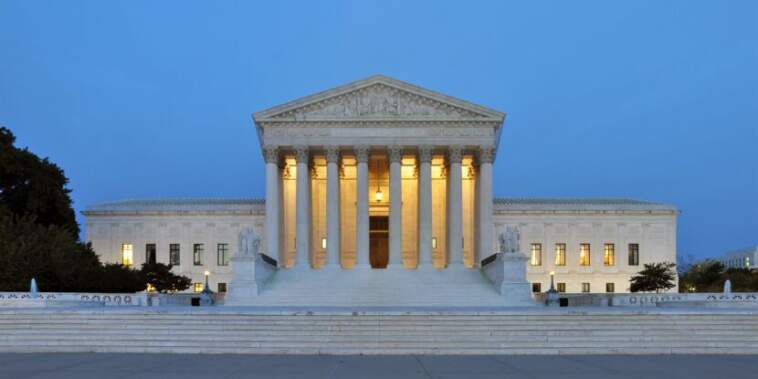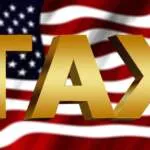(National Pulse) A pair of cases before the United States Supreme Court could have a far-reaching impact beyond any other rulings the court may make this term, and the decision could be as soon as this week or next. On the surface, Loper Bright Enterprises v. Raimondoand Relentless, Inc. v. Department of Commerce seem like mundane lawsuits over U.S. fishery laws. However, underneath their dull exterior, the lawsuits challenge how the executive branch and Congress regulate everything from commercial fishing to energy production to immigration.
The two cases directly target a legal doctrine known as ‘Chevron deference,’ which stems from the landmark 1984 Supreme Court ruling in Chevron U.S.A., Inc. v. Natural Resources Defense Council, Inc. Ending the Chevron deference judicial doctrine has long been a goal of some factions on the American right. However, in recent years, some in the conservative legal community have become skeptical that overturning the Chevron decision would buy anything but a physical victory.
WHAT IS CHEVRON DEFERENCE?
Chevron deference is a doctrine established 40 years ago, when the high court established a legal test to determine when federal courts must defer to a government agency’s regulatory interpretation of a law or statute.
The Chevron test has two steps:
- The first step asks whether Congress has legislated directly on the issue in question;
- The second step asks, regarding a federal agency‘s regulatory determinations, “…whether the agency’s answer is based on a permissible construction of the statute…” in question.
This simple test resulted in Chevron becoming the key case in thousands of legal actions underpinning U.S. administrative law and led to the growth of the U.S. regulatory regime under the executive branch.
WHY IS CHEVRON IMPORTANT?
At the core of Chevron is the question of how specific Congress must be in its authorizing language when granting regulatory authority to executive branch agencies. The Supreme Court took issue with the D.C. Circuit Court‘s attempt to intervene in a federal agency’s power to make regulatory policy decisions and accused the lower court of trying to usurp that power for themselves.
The critical lines in the decision, which many libertarian and small-government conservative jurists and activists take issue with, read:
“The power of an administrative agency to administer a congressionally created program necessarily requires the formulation of policy and the making of rules to fill any gap left, implicitly or explicitly, by Congress. If Congress has explicitly left a gap for the agency to fill, there is an express delegation of authority to the agency to elucidate a specific provision of the statute by regulation.”
Small-government conservatives contend Congress must be explicit in its regulatory authorizing language and that deference to executive branch agencies violates a strict understanding of the U.S. Constitution. However, the expansive power regarding the writ of authority granted to the executive branch by Chevron has also allowed the federal government to be more proactive—especially under former President Donald J. Trump—in using regulatory power to address issues like illegal immigration. In recent years, the latter view has resulted in an ideological divide within the conservative legal community.
THE FIGHT AGAINST CHEVRON.
Loper Bright Enterprises v. Raimondo and Relentless, Inc. v. Department of Commerce are two cases that ostensibly seek to overturn Biden government fishery rules issued by the U.S. Department of Commerce and its Secretary, Gina Raimondo. Issued by the National Marine Fisheries Service (NMFS), the regulatory rules are derived—according to the Commerce Department—under the authority of the Magnuson-Stevens Act. The specific regulatory rule question requires that commercial fishing boats allow federal observers on board “…for the purpose of collecting data necessary for the conservation and management of the fishery.”
The two lawsuits seek relief from the observer requirement and the roughly $710 per day the commercial fishers are required to pay for the cost of the observers. However, the U.S. Courts of Appeals for the District of Columbia Circuit and the First Circuit upheld the Commerce Department regulation, contending it was a reasonable interpretation of federal regulatory statute under the Chevron doctrine. The two rulings set up appeals to the U.S. Supreme Court and the potential reversal of the 1984 decision.






